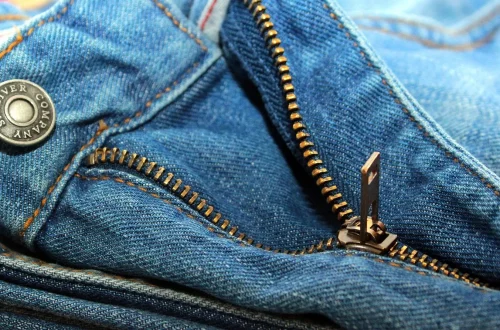
The Untold Stories of UFC Fighters in Their Most Vulnerable Moments
The world of mixed martial arts (MMA) is often painted with a brush of resilience, grit, and triumph. The UFC, as the pinnacle of this sport, showcases athletes who have trained extensively, pushing their bodies and minds to the limit for the glory of victory. However, behind the facade of strength and invincibility lies a more nuanced narrative—one that reveals the vulnerability of these fighters. Every punch thrown and every kick landed tells a story, yet it is the moments of doubt, fear, and emotional turmoil that often remain untold.
The pressure to perform at the highest level, coupled with the physical and mental toll of the sport, can lead to profound moments of vulnerability. These athletes, often seen as superheroes in the ring, face challenges that extend beyond their physical prowess. From grappling with personal demons to navigating the complexities of fame, their journeys are filled with moments that test their character in profound ways. In a world where losing is often equated to failure, understanding these vulnerable moments can foster a deeper connection with the athletes we admire. The fight game is not just about technique and strength; it’s also about heart, spirit, and the human condition.
Facing Personal Demons: The Mental Health Struggles of Fighters
Mental health has emerged as an essential topic of discussion in the world of sports, and UFC fighters are no exception. The intense pressure to perform can lead to mental health issues, including anxiety, depression, and stress. Fighters often find themselves in a high-stakes environment, where the expectation to win can become overwhelming.
Many athletes have openly discussed their battles with mental health. For instance, some fighters have shared stories of feeling isolated, even when surrounded by teammates and fans. The fear of losing, disappointing their supporters, or not living up to their own expectations can lead to a spiral of negative thoughts. In a sport that demands physical excellence, the mental aspect is equally crucial, yet often overlooked.
Moreover, the stigma surrounding mental health can make it difficult for fighters to seek help. They may worry that showing vulnerability could be perceived as weakness, impacting their careers and public image. However, there’s a growing recognition within the UFC community that mental health is just as important as physical conditioning. Fighters are increasingly encouraged to speak out about their struggles, creating a supportive environment that emphasizes the importance of mental wellness.
Several organizations have begun focusing on mental health resources tailored specifically for combat sports athletes. Initiatives that promote open discussions and provide access to mental health professionals are becoming more common. These efforts aim to break down barriers and encourage fighters to prioritize their mental well-being, recognizing that true strength lies in being able to confront and manage one’s vulnerabilities.
The Impact of Injury: Navigating Physical Setbacks
Injuries are an inevitable part of any contact sport, and for UFC fighters, they can be devastating. An injury not only sidelines an athlete physically but can also take a significant toll on their mental state. The fear of being unable to return to the octagon, combined with the pressure to perform at peak levels, can lead to feelings of frustration and helplessness.
Many fighters experience a profound sense of loss when they are injured. Their identity is often closely tied to their role as an athlete, and a prolonged absence from competition can lead to an existential crisis. The uncertainty about recovery and the anxiety surrounding the potential for re-injury can weigh heavily on their minds.
Moreover, the road to recovery is rarely straightforward. Rehabilitation can be a long and arduous process, filled with setbacks and emotional challenges. Fighters must not only rebuild their physical strength but also regain their confidence. This journey can reveal a fighter’s true character, as they confront obstacles that test their determination and resolve.
Support from coaches, teammates, and mental health professionals can be crucial during these challenging times. Many fighters find solace in sharing their experiences with others who have faced similar situations, creating a sense of camaraderie that helps them navigate their vulnerabilities. Ultimately, the ability to overcome injuries can foster resilience, allowing fighters to emerge stronger and more focused than ever.
Life Beyond the Octagon: The Challenges of Fame and Public Scrutiny
With success in the UFC often comes fame, and while this can be exhilarating, it also brings its own set of challenges. The spotlight can be blinding, and the constant scrutiny from fans and media can take a toll on a fighter’s mental and emotional health. Being in the public eye means that every misstep, both in and out of the octagon, is magnified and criticized.
Many fighters struggle with the pressure to maintain a certain image or persona, leading to a disconnect between their public and private lives. The pressure to be “on” all the time can be exhausting, leaving little room for vulnerability or authenticity. Some fighters have expressed feeling like they have to put on a mask, hiding their true selves to meet the expectations of their fans and sponsors.
Additionally, the lure of fame can create a sense of isolation. Friends and family may treat them differently, and the fear of being judged can make it difficult to form genuine connections. This isolation can exacerbate feelings of loneliness and anxiety, leading some fighters to seek solace in unhealthy coping mechanisms.
However, there is a growing movement within the MMA community advocating for authenticity and mental wellness. Fighters are beginning to share their stories more openly, discussing not only their triumphs but also their struggles with fame and public perception. By doing so, they are helping to humanize the sport, reminding fans that behind the headlines and highlights, there are real people navigating complex emotions and challenges.
Finding Strength in Vulnerability: The Power of Authentic Stories
While vulnerability may often be seen as a weakness, it can also be a tremendous source of strength. Fighters who embrace their vulnerabilities can connect with fans on a deeper level, allowing their stories to resonate beyond the octagon. When athletes share their personal journeys—be it struggles with mental health, injuries, or the pressures of fame—they contribute to a broader conversation about the realities of life as a fighter.
These authentic stories can inspire others, both within and outside the sport. By being open about their challenges, fighters can encourage fans and fellow athletes to confront their vulnerabilities and seek help when needed. This shift in narrative can foster a culture of support and understanding within the MMA community, promoting the idea that it’s okay to not be okay.
Moreover, embracing vulnerability can lead to personal growth. Fighters who confront their fears and challenges often emerge with a renewed sense of purpose and clarity. They learn to navigate their emotions and develop resilience, not only as athletes but as individuals.
In a sport that celebrates strength and toughness, the power of vulnerability should not be underestimated. It reminds us that every fighter, regardless of their success in the octagon, is human. The untold stories of UFC fighters in their most vulnerable moments serve as a testament to the complexity of the human experience, showcasing that true strength lies in the ability to embrace and overcome adversity.
In conclusion, while the UFC may showcase the physical prowess of its fighters, it is essential to recognize the emotional and mental battles they face. By shedding light on their untold stories, we can foster a more compassionate understanding of these athletes, celebrating not just their victories but their journeys through vulnerability.
*Note: This article is not medical advice. If you are experiencing health issues, please consult a qualified healthcare professional.*




